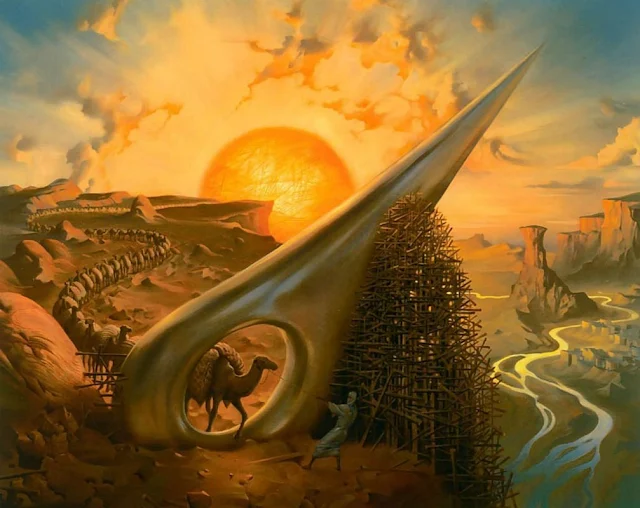One of the reasons for the ever contemporary relevance of the Gospel is the fact that it does not conform to the dominant tendencies of “public opinion” or of statistics. Paradoxically, it is also one of the reasons why it has had so little visible effect on the majority of the people.
The comments of Jesus on wealth and money are precisely in line with this. In times like these when ideologies that originated in capitalism or in Marxism give a privileged place to the economic sphere and make the problem of production and distribution of wealth the cornerstone of their historical success, the works of Jesus appear anachronistic and condemned to being admired but no imitated.
The recounting of the teachings of the Gospel on wealth and the wealthy do not present an optimistic balance. Jesus does not condemn money in itself. This is consistent with his approach: he condemns no thing: he condemns or forewarns against people’s attitudes toward things. In the case of money or wealth, his warnings are so systematic that Christians are forced to examine all our “spontaneous” criteria and attitudes about the question.
For Jesus, the radical ambiguity of wealth consists in its tendency to become “lord” of the human heart. This new “god” leaves room for no other. Either we serve the God who frees us or the god who by enriching us chains us to the earth. The option between Christ and money implies a vision of life and of the human vocation. To serve money is to both make a god out of the earth and to pervert the purpose of its goods and of the person who uses them. The warning of Christ in this respect is clear: “do not lay up for yourselves treasures on earth”…they are precarious and futile…they pervert the heart and the reason for existence…”For where your treasure is, there will your heart be also”. (Mt 6:19-21)
That is why Jesus is so severe with the rich. His teaching on human liberation consists not only in declaring the poor blessed and privileged heirs of the kingdom. There is also a warning and a call to the rich. It even surprises us, in reading the Gospel, to note that Jesus addresses at least as many discourses to the rich as to the poor, discourses with a content equally liberating though different.
For a rich person “it is more difficult to enter into the kingdom of God than for a camel to pass through the eye of a needle.” (Lk 18:24) He who makes of riches “his consolation… shall hunger…and mourn and weep.” (Lk6:24-25) Before God, “he is pitiable, poor, blind and naked and deserves compassion.” (Apoc 3:17)
In his discourse on riches, Jesus, for whom “all is possible,” (Lk 18:27) and who “came to seek and to save what was lost,” (Lk 19:10) has a redeeming intention. The rich man must change, ceasing to “store up things” for himself instead of becoming rich before God. (Lk 12:21) He must rediscover the deep significance of his riches and money according to Christ’s criteria.
______________________________________
My Reflections:
You always have the poor with you.” (Jn 12:7) This scripture quote is almost always used to protect a status quo that has an unequal and unjust distribution of income. This is one of many examples of the gross distortion of Jesus’ teachings on wealth and poverty. The gospel of prosperity’s approach misrepresents the teachings of Jesus and witness of his life. It holds wealth and security as the consequence of a good Christian life. Its fundamental principle is a business-like mantra: if you are good, God will bless you with abundance defined as the full benefits of a consumer society. This is a far cry from the child born in poverty amidst the animals who dies naked and abandoned by his followers on the cross.
Jesus’ message on poverty and wealth is that we are to make God the center, the final source of our security. It is a question of the heart using our possessions to refocus reality where there is a transition from ourselves to God at the center. Do we use things to bring us closer to God? Or do we put a misguided trust in possessions for our security and happiness? Do we have a “butler” God who is there to serve our needs and to guarantee our happiness defined by the culture of consumption? Or do we use our wealth to draw us into the mystery of the merciful and loving God revealed in Christ crucified and Christ risen?
We are caught in a cultural system of consumption. New and better products drive this system. Wealth is the basis of a sense of ever-expanding satisfaction and safekeeping. Worldly goods are the ultimate assurance of the good life defined by consumption, health and youth as manifested in all ages. “You look really good for your age!” Newer and more exclusive and better products drive a consumption system that deifies a lifestyle of “more.” This holds true at almost all levels of economic reality, from the poor to the truly wealthy. Whether it is an old used Ford or a Mercedes, a TV set or entertainment system, a throw-away cell or the latest from Apple there is always the relentless pull to upgrade and expand.
Jesus had a major concern about things. They should express and support the dignity of the person made in the image of God. Things should be a source of freedom in walking with Jesus. They should be a source of peace, not worry and anxiety. Belongings should be seen as what God made them for, stepping stones into the mystery of love. This is why the ultimate question is not to be rich or poor. The true Gospel question is, do things make us free to seek God and his kingdom in the footsteps of Jesus?










